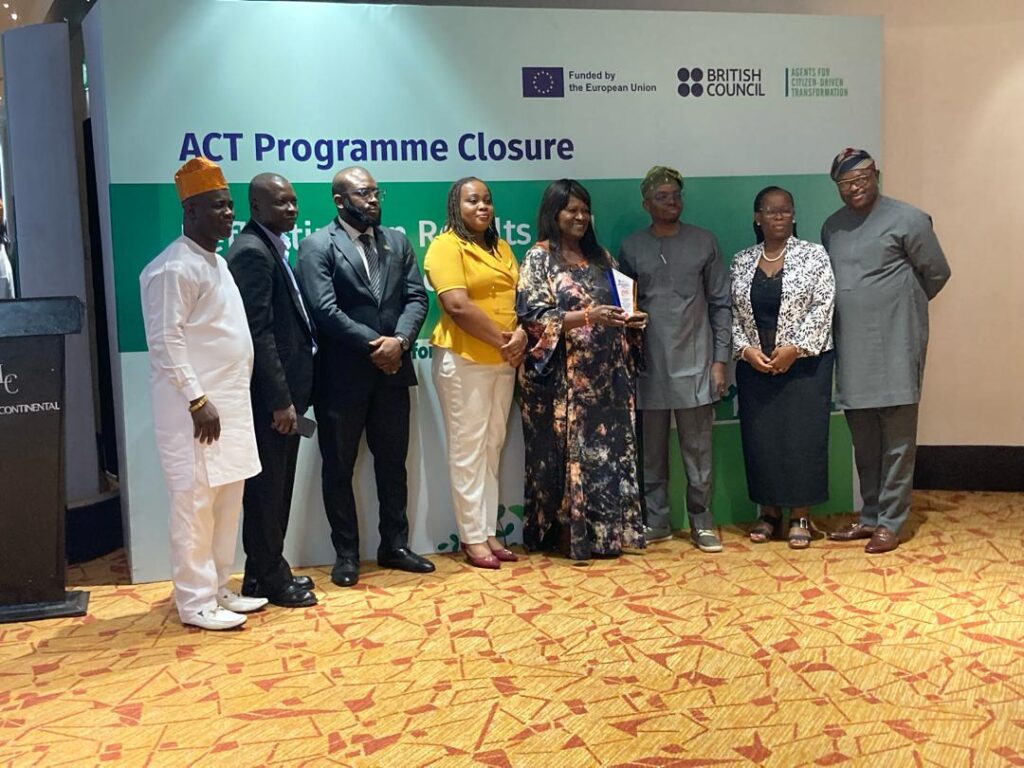Former Chairman and Founder of the Nigerian Network of Non-Governmental Organisations (NNNGO) Ms Yemisi Ransome-Kuti has urged the media, public servants to strengthen collaboration in tackling the development issues in Nigeria.
While speaking at The European Union – Agents for Citizens-Driven Transformation (EU-ACT) Programme of the British Council, tagged: ‘ACT Programme Closure’, Reflecting on the Results and Lessons Learned in Lagos State” held recently at the Lagos Continental Hotel, Lagos, she emphasised that the need for partnership will make the work of the Civil Society Organisations (CSOs) a lot easier, effective and would translate to coverage of impact.
Drawing attention to the influential role of the media in driving societal change, the Matriarch urged both media practitioners and public servants to recognise themselves as agents of civil society, thus fostering a collective effort towards progress.
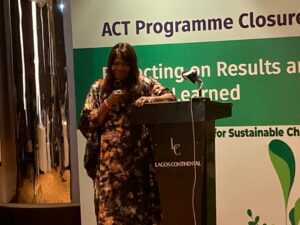
“Everybody is affected by what is happening in Nigeria, the media is very much inside the same ‘pepper soup’ as everyone and your work asserts a huge voice for change, so it is more effective that we collaborate and coordinate,” Ransome-Kuti affirmed.
“As you’re working as public servants, also see yourself as civil society agents so that the things you cannot do or say in your capacity as a public officer, you can initiate through your networks in civil society groups.”
Ransome-Kuti, who also received a Lifetime Achievement Award at the event for her impact, commended the EU-ACT programme for the remarkable impacts that have been made among CSOs.
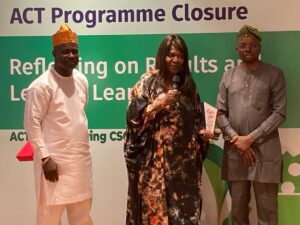
ACT National Programme Manager (NPM), Mr. Damilare Babalola, echoed Ransome-Kuti’s sentiments, emphasising collaboration as a cornerstone for sustainability.
According to him, Sustainability is premised on collaboration and would help the gains of the EU-ACT programme make a lasting impact.
Babalola elaborated on the programme’s objectives, underscoring its focus on strengthening the civil society sector through capacity-building and creating an enabling environment for CSOs to thrive.
He revealed that the programme had successfully enhanced the capacities of 40 networks and 233 CSOs, to strengthen their internal systems, programme approach and external relations; empowering them to become more credible, transparent, and accountable agents of sustainable development.
“We focused on two areas of activities; support to strengthening institutional capacity, organisational development for a selected number of CSOs and also to create an opportunity to enable the regulatory environment for these organisations to do their work effectively.
“Our theory is that if there are a lot of well-capacitated organisations working in the sector and there is an enabling environment for them to do their work, they will thrive and ultimately become more credible, transparent and accountable agents of sustainable development.”
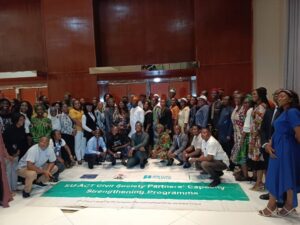
The EU-Act Focal Person in Lagos State, Mr Adeshola Afariogun, further explained the importance of continued collaboration among CSOs to extend support to those who have not directly benefited from the programme.
He encouraged CSOs to leverage the capacities gained and utilise the Virtual Peer Learning Hubs (VPLH) established for sustainability.
“CSOs should continue to utilise the capacity that they have gained and link up with our Virtual Peer Learning Hubs (VPLH) which is our sustainability plan.”
General Manager, of Lagos State Television (LTV), Mrs Sola Kosoko, in her goodwill remark, reiterated the sentiment that the closure of the ACT programme marked not an end but a new beginning, as stakeholders would continue to collaborate and fulfill their responsibilities in the years ahead.
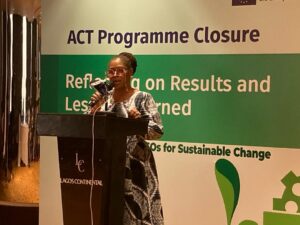
Through the EU-ACT programme, over 150 capacity-strengthening training sessions were conducted across 10 states, supporting 19 organizational development domains. Additionally, 54 emerging CSOs received training to improve their financial management and organizational strategy development, while 50 CSOs led by women, youths, and persons with disabilities were trained on utilizing digital platforms for enhanced policy advocacy work.
Notably, more than 10 Virtual Peer Learning Hubs were established at the state level, further bolstering sustainability efforts.
READ ALSO: Editorial: Kudos to The Punch at 50

